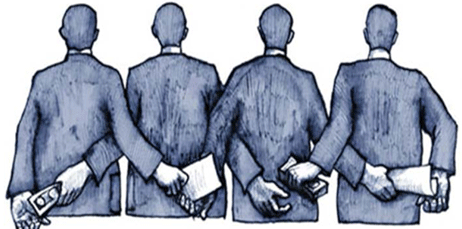THE TRILATERAL COMMISSION
2009 PLENARYMEETING – TOKYO, JAPAN, APRIL 26, 2009
THE INTELLECTUAL UNDERPINNINGS OF THE TRILATERAL PARTNERSHIP IN THE 21ST CENTURY
Dr. Henry Kissinger
When the Trilateral Commission was started in 1974, the world was essentially a bipolar world. The idea of David Rockefeller and his colleagues was to bring Japan into a dialogue with what was then the center of global thinking and power, namely, the North Atlantic area. China had just begun its relationship with the United States—it was not a significant economic factor—and Japan was an outpost in Asia for the concerns that were evolved primarily in the North Atlantic context. Since then, the international system has changed fundamentally.Let me talk about the nature of the international order and the issues in relation to the international order that I see emerging and which require some global group that addresses them.
Since 1974, we have seen the collapse of the Soviet Union, the unification of Germany, the rise of China, and the abandonment by India of its non-alignment and its active participation in global affairs.
We have also seen the rise of nongovernmental organizations—some terrorist, some nongovernmental organizations that undertake positive work, but all of them active in a manner that was marginal or nonexistent when we conducted Middle East policy in the administration in which I served. Terrorism was a very marginal phenomenon. We dealt with governments and we thought we had a difficult time, but those governments were only marginally affected by the groups that avowed terrorism.
We have seen the shift of the center of gravity of international affairs from the Atlantic to the Pacific, and that is one of the major themes of this new period. We have seen the collapse of the financial system that had been believed to be—in the 1980s and 1990s— the pillar of the economic financial order.
About this I will make a few observations. Some of the discussions with respect to the economic system create the impression that their advocates believe that, at the end of the current crisis, we will go back to a slightly improved version of the previous system, with perhaps some more regulation. I do not believe that that is possible. There are a number of reasons why that will not be the case.
I do not think it will be possible or desirable to restore the dominant position of the United States, and one of the key issues that needs to be discussed in this group and others is how one can have an international economic system that has various centers of power, not one that is dominated by one country.
In fact, one of the consequences of the financial crisis is a certain loss of confidence in the United States across the board. Many governments and many countries had become used to the proposition that in the political world we have flights of inspiration that prove temporary. But in the economic world it had been assumed that the US model was the one that was correct and that would be permanent. The fact that this has proved not to be the case will affect the American ability to prescribe solutions in a fundamental way.
I also think that the role of government in the next period, for better or worse, will be much larger and that attention will have to paid to the fundamental flaw of the globalized economic system as it existed before, which was that the economic model and the political model were out of sync with each other.
The global economic model assumed that there were principles that could be applied universally and that it was self-regulating. For that reason it was not believed to be necessary to have a political safety net for the economic system. But the fact was that whenever a crisis occurred, or whenever any group felt significantly disadvantaged, they would go to the political institutions that they knew, which were the national governments.
Therefore, there was an inherent discontinuity between the way economics was dealt with and the way politics would react. This has been shown by the fact that in the first round of this crisis, the solutions are attempted on a national basis—which are then coordinated—and not on a global basis. So, all of these matters will need attention and they will need attention in a very special context. Every country that holds the views that I described, which is most of them, has two contradictory motivations.
On the one hand, they want to make themselves independent of the forces that produced the crisis and, at the same time, they recognize that the solutions require a global answer. The result will have to be the evolution of some kind of multipolar leadership of the international system.
Let me now turn to that issue. The political world is in a period of fundamental change. When I taught international politics, we dealt with the concept of sovereignty as the organizing principle of the international system, both for foreign policy and for domestic policy. But now the notion of sovereignty is under attack or in the process of change in many parts of the world. Europe, which originated the concept of the nation-state, has voluntarily surrendered part of its sovereignty to the European Union.
But the European Union has not been able, up to now, to generate the political loyalties that the nation-state did. Therefore there is a gap in Europe between the way foreign policy used to be conducted when the nation-state was the repository of all national loyalties and the current situation where on the economic level the European Union becomes stronger but there is no repository for the kind of strategic foreign policy that used to be characteristic of Europe.


5 thoughts on “Kissinger raps U.S. at Trilateral Commission plenary meeting in Tokyo, Japan”